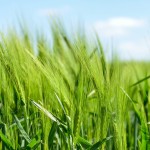A lot goes into physical health, but I think that it is undeniable that the two foundational pillars are exercise and nutrition. For me personally, eating well is the much harder side of the coin. Now, I know what you are thinking “that is because you are one of the weirdos that actually like to workout”. True. I am not going to deny that I don’t mind a good sweat sesh. However, the real reason why I think nutrition is much more difficult than exercise is because eating is constantly “there”. What I mean by that is the simple fact that every second of every day is a temptation to eat some sort of garbage, while on the flip side, once you finish your workout, it is done for the day, and you don’t have to think about it.
I am telling you this so that you read the rest of this blog with the understanding that eating well is hard for me too. I binge eat chocolate chip cookies on a Friday night. I say “to hell with it” and eat all the things after an unplanned treat. I drown my stress in cookie dough ice cream. I hit the Taco Bell drive through, devouring my tacos while on the way to Dairy Queen. I have been there. I think so many of my clients and followers think I have this perfectly ordered way of eating where I eat nutrient dense foods all the time, and only occasionally and consciously have a small treat here and there.
I have news for you sister. That is not the truth, and sorry if that is a major disappointment. Sure, after years of practice, I have gotten a good handle on eating well, and I feel like I am pretty consistent, but that isn’t to say I don’t have my slips. So I wanted to start this blog with a little real talk to set the stage that it is hard to have a healthy relationship with food. This is precisely the reason why I do not follow any popular eating styles, eliminate any food groups, intermittent fast or count any macros or calories.
Before I break this down like MC Hammer in the 90s, I have one more caveat. This is what I personally do, but ultimately, we all need to find the method that works for our own madness! Eat in such a way that makes healthy eating doable for you. Ok here goes.
I do not eliminate food groups
Sure, there are a lot of things that I do not eat on a majority basis such as gluten, added sugars and dairy. I would say I try to avoid these things 80 to 85% of the time, and I am even going to explain why because I strongly believe in this and think it is THAT important.
For me, eating is not simply about what is going to make me look good. No, eating should largely be about fueling our bodies well with the proper micro and macro nutrients and in turn keeping ourselves healthy. EVERY TIME WE PUT FOOD IN OUR MOUTHS, WE ARE CHOOSING TO FIGHT OR FEED DISEASE. This is exactly why I avoid the aforementioned foods most of the time because they feed disease as they are difficult for the body to digest. Let me explain some science behind that.
Our digestive system, or gut, is the very core of your body’s immune system (who knew?) and helps to defend yourself from viruses and bacteria. The gut is lined with small finger-like projections called villi that absorb nutrients. However, difficult to digest foods such as gluten and dairy (and other foods on an individual basis) are found to be resistant to the body’s digestive enzymes and so they remain in tact when passing through the villi and damaging them in the process. This can lead to:
– Nutrient deficiencies because the villi are irritated and can no longer absorb
– Inflammation because the immune system sees these things as a foreign invaders so they launch an attack against them
– Disease because the damaged villi leave you susceptible to other foreign invaders and bad bacteria, and your body can’t fight them off
So you see, if you are regularly consuming foods you cannot digest, you will be leaving yourself a lot more susceptible to disease, big and small, from the common cold to cancer. Plus, there are a myriad of other negative side effects such as fatigue, brain fog, inflammation, skin problems and many more.
Because of this, I regularly try to avoid certain foods, but I certainly do not completely eliminate them from my diet. As a matter of fact, I have these things on a weekly basis. Pizza is my favorite food in the entire world, and I would be hard pressed to turn down a chocolate chip cookie or cake batter ice cream.
Now, I know what you are thinking…if I truly think they are so bad for me, why don’t I remove them entirely from my diet. Well, if we are being simply honest, I don’t have the willpower for that, and I don’t believe it is realistic. Sure, I could eat a very strict diet for a time being…most people can for one month, one year or maybe even longer, but I truly believe at some point we all will say “forget this” at some point and that so often leads to an entire swing of the pendulum and binge eating. This is why I choose to avoid these foods most of the time, so as to improve my interior health, but I savor them on a weekly basis still to have a balance that I can maintain and enjoy day in and day out.
I don’t follow popular eating styles
I think you know what I am talking about…Paleo, Keto, Atkins, Whole30, Weight Watchers, Protein Shakes, etc. I am not saying that these diets are wrong, and as a matter fact, there are a lot of things that I like about them! For example, I LOVE that Whole30 places all the emphasis on real foods that are nutrient dense.
However, I just want to put it out there that none of these eating styles are magical. They basically all boil down to one thing: they each get people to consume less calories than what they burn. Keto removes calorie dense food groups. Weight Watchers keeps portions down in general. Protein Shakes replace meals with shakes. So you see, the magic isn’t necessarily in the diet itself, but that it reduces caloric intake.
Personally, I would rather just eat a balanced diet that isn’t so bogged down by specific rules as I think this is more sustainable for a LIFETIME. I would probably hit a breaking point with each of these, and drawing from the experience of working with hundreds of clients, many people do. I have seen this time and time again, and when people hit a breaking point, they tend to do a 180, which in this case means crappy food and too much of it.
I don’t intermittent fast
I do not personally practice intermittent fasting or recommend it with my clients largely for hormonal reasons. Women’s hormones are a bit of a bearcat to regulate anyway, and fasting can disrupt normal hormone function, which can be very difficult to correct and reverse. The female body is made to go into starvation with fasting because of how we are designed to bare children and that in turn affects our metabolism. Some women may not have issues, but as a generality, it will most likely have a negative impact. It is a different story with men as they have different hormones
Also from an emotional aspect, I have seen intermittent fasting to be detrimental. As previously mentioned, women tend to struggle with their relationship with food, and intermittent fasting can promote the binge, restriction mentality, which leads to all kinds of issues. I have seen this many, many times with my clients, and you do not want to find yourself in that boat, as it is a very hard habit to correct and move past.
I don’t count calories or macros
I preach to all my clients that they need to have the proper food balance, and yet I don’t have them count macros. I also tell them to track their food for a time, but NOT forever. Yes, I know these things may sound hypocritical at first glance, but let me back up and explain.
We all need to have a general education of food and awareness of what and how much we are eating. I have had clients unknowingly consuming 750 calories in trail mix for one snack or other gals believing that corn dogs and french fries is a healthy lunch. I do not say these things to provide a chuckle, but rather to prove the point that we need to understand what is good for our bodies and how much we are consuming. So yes, I do think it can be beneficial to track food for a time to build up that awareness.
And yet I don’t recommend counting anything for anything other than a short time frame.
The biggest reason, I personally don’t count or utilize that with my clients is that it can all too quickly become obsessive. Again, I am speaking from experience in seeing this in many of my clients. Counting means that you need to think about your food. A lot. To me that is not healthy and can become borderline obsessive.
I am not saying that this is the case 100% of the time. There are people out there who count macros beautifully with ease, and it works for them. That is great! I just know for me that I prefer not to think so much about my food and eat more naturally and intuitively. I know what a carb, a fat and a protein is, and I have a rough idea of how much I need for each so I try to consume those amounts without all the weighing and tracking paraphernalia. Moreover, I don’t feel like I can recommend it in good conscience as a whole to my group of clients because I would feel terrible if it caused someone to become obsessively miserable with food because I have seen that in clients, and it is not fun!
So how DO I eat?
I honestly try to keep it very simple:
1. Eating less than what I burn
2. Eating whole, real foods that are packed with nutrients most of the time, while enjoying the occasional treat
3. Eating intuitively, feeding myself when hungry and stopping when full
Do I nail this day in and day out? Not even close, but it is something that I find doable and enjoyable to maintain because eating shouldn’t add stress to your life or make you miserable.








Leave a Reply